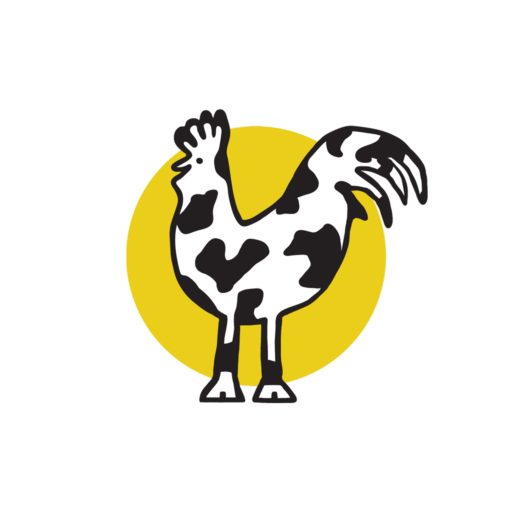Small Business and Facebook Marketing
Is Facebook a part of your Small Business Marketing Plan? Have you paid attention to what and why many large business have pulled their advertising on Facebook?
Starting July 1 over 400 advertisers pulled their ads from Facebook, Instagram, and other Facebook properties. The list of companies continues to grow and range from clothing lines, automobile manufacturers, food and drink companies, and even typically conservative Insurance companies. These companies collectively spend $7.7 Billion monthly on all their advertising. So this is not a small drop in business for Facebook, and their stock value has dropped despite minor changes to the way ads are presented as well as how (or if) certain groups are promoted. How is Small Business responding? We may not have the same individual impact, but that doesn’t mean our customers aren’t watching what we do.
The reason these advertisers are pulling the plug is because their ads are being shown along side ads for various hate and disinformation groups. They felt like it was implied association or endorsement of those groups. Pressure by consumers also played into I’m sure, much like the boycott of businesses that profited from Apartheid in the 1980s.
Some of these companies had also disclosed they were cutting marketing because of Covid-19 affecting sales and demand for their products. They all aren’t as altruistic as it may appear.
What does this mean for small businesses?
First, it’s always a good idea to periodically review your marketing plan. Is what you are doing now getting results you want? And is what you are doing now consistent with your companies ethics? Are you marketing blindly and just doing what is easiest and familiar to you?
Facebook Ads
There are several ways to advertise on Facebook, for this post we’ll be considering those that target by interest. For example if a company makes bicycle shorts, they’ll likely want to target people who are in to bicycles. Facebook then presents the ad to people it thinks match that interest. For companies with a broader target market, Coca-Cola for example, they may have a broader audience. They may fine tune to specific groups such as by region, gender, and possibly age, but overall they are still advertising to most people. It’s quite likely that the pool of people Coca-Cola markets to overlaps that of hate groups. This is where the problem lays. (Beyond whether or not hate groups should even be allowed to advertise on Facebook).
What is Facebook Doing in Response to the Boycott?
Facebook has made minor changes. But so far, it has not changed the mind of the companies who are boycotting them.
How Does Facebook Define Hate Groups & Hate Speech?
This is a loaded question! First, it’s good to remember that Facebook is a company, and as such can define what is allowed and what is not as they choose, as long as it follows laws in the countries they do business in. First Amendment rights to not apply here. However, it is in their best interest to be clear and consistent. Many people have their doubts as to how good they are in those departments. If you’d like to read their policies, grab a comfy chair and dive into their manual. I have seen people on both the left and right ends of the political spectrum complain about Facebook’s removal and censoring of content. So whatever side you are on… they really aren’t targeting just you! Hate speech is defined in section III – Objectionable Content. The short version is:
We define hate speech as a direct attack on people based on what we call protected characteristics — race, ethnicity, national origin, religious affiliation, sexual orientation, caste, sex, gender, gender identity, and serious disease or disability. We protect against attacks on the basis of age when age is paired with another protected characteristic, and also provide certain protections for immigration status. We define attack as violent or dehumanizing speech, statements of inferiority, or calls for exclusion or segregation.
False News is described under Section 4 Article 21 (told ya it was a long read!). This is the section where most people have issues with. I do not envy Facebook’s task here. There are a lot of grey areas, and unfortunately many people only read the headlines and share based on that. They don’t read the whole article to learn more about the context, not to mention quality of what they are sharing. That’s on us as people to do better at too. The tl;dr is:
Reducing the spread of false news on Facebook is a responsibility that we take seriously. We also recognize that this is a challenging and sensitive issue. We want to help people stay informed without stifling productive public discourse. There is also a fine line between false news and satire or opinion.
On a personal note, I’ll say there is a difference between bad reporting, and full on fake news. Bad reporting is just poor research, editing, and/or writing. Fake news is deliberate intent to mislead. It’s still on us as readers and consumer of the content to make sure what we are reading is accurate, especially if we’re going to share it. If clients or customers see you continually sharing fake/hate/misleading/whatever content then that can affect your business. Share wisely.
Is Facebook Advertising a Good Fit for my Business?
Most national and international companies do not want to be associated with such groups because it’s bad for business and/or it is not in line with their core ethics. This also holds true for small businesses. We want to be community leaders, and it is good for business to be supportive of all people. Small Businesses do better when there is a strong middle class to buy our products and services.
Facebook accounts are still growing, but most of their growth is now in Asia. In the United States the number of users has plateaued and percent of active users is declining. More importantly, the growth in the US is in older populations, particularly the Silent Generation. (Pre-Boomers). Gen-X usage is dropping, and the number of new, younger users is dropping as well. So, while it is still useful, Facebook’s reach is on the decline.
Let’s Come Back to What does this mean for small businesses?
As I mentioned at the beginning, it’s always good to regularly review your marketing plan. Don’t market blindly.
- Is it effective?
- Does it align with your businesses core values?
What may have worked great for you in 2019, might not now. Consumers change, economies change, and 2020 has already thrown a lot of curve balls at us. Be flexible in how your market, and how you conduct business. Some local businesses have worked with the Covid restrictions to evolve their business and gain new customers. I’ve gone to Gold Country Yoga a few times in the past and loved it, but it’s a bit of a drive for me, and hard for me to plan in advance. But with the shutdown, they pivoted and added video classes and a few levels of subscriptions. This not only let them continue to do business – but also gain customers they wouldn’t have before.
(I am a member now, but they are not my client and I’m not getting any compensation for this – I’m just a fan of their thoughtful approach)
Let’s all be open to adjusting our business to meet current reality and more importantly, let’s support and respect each other.




0 Comments